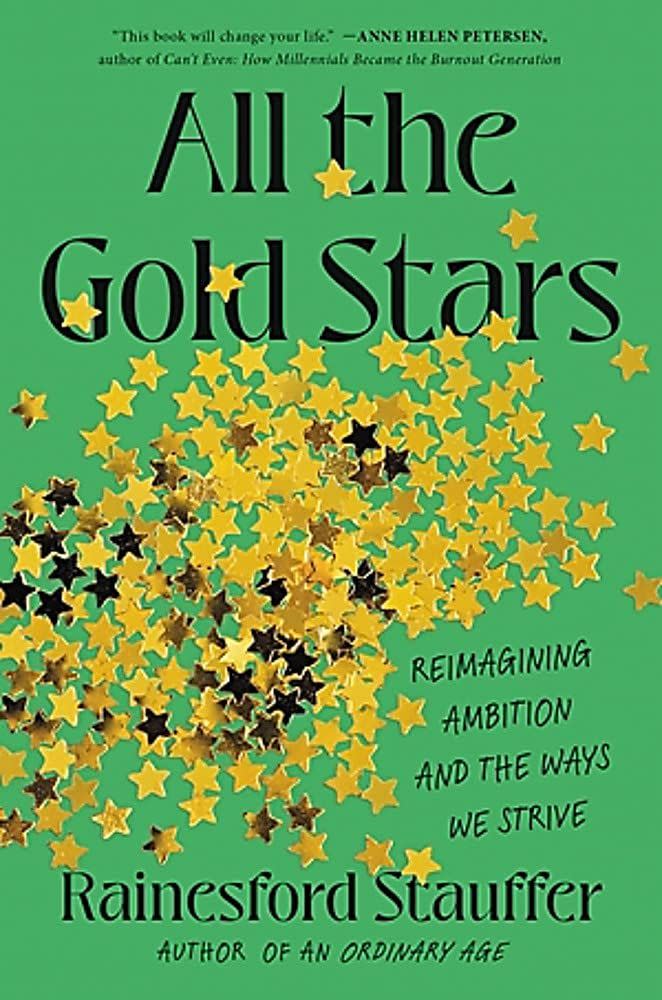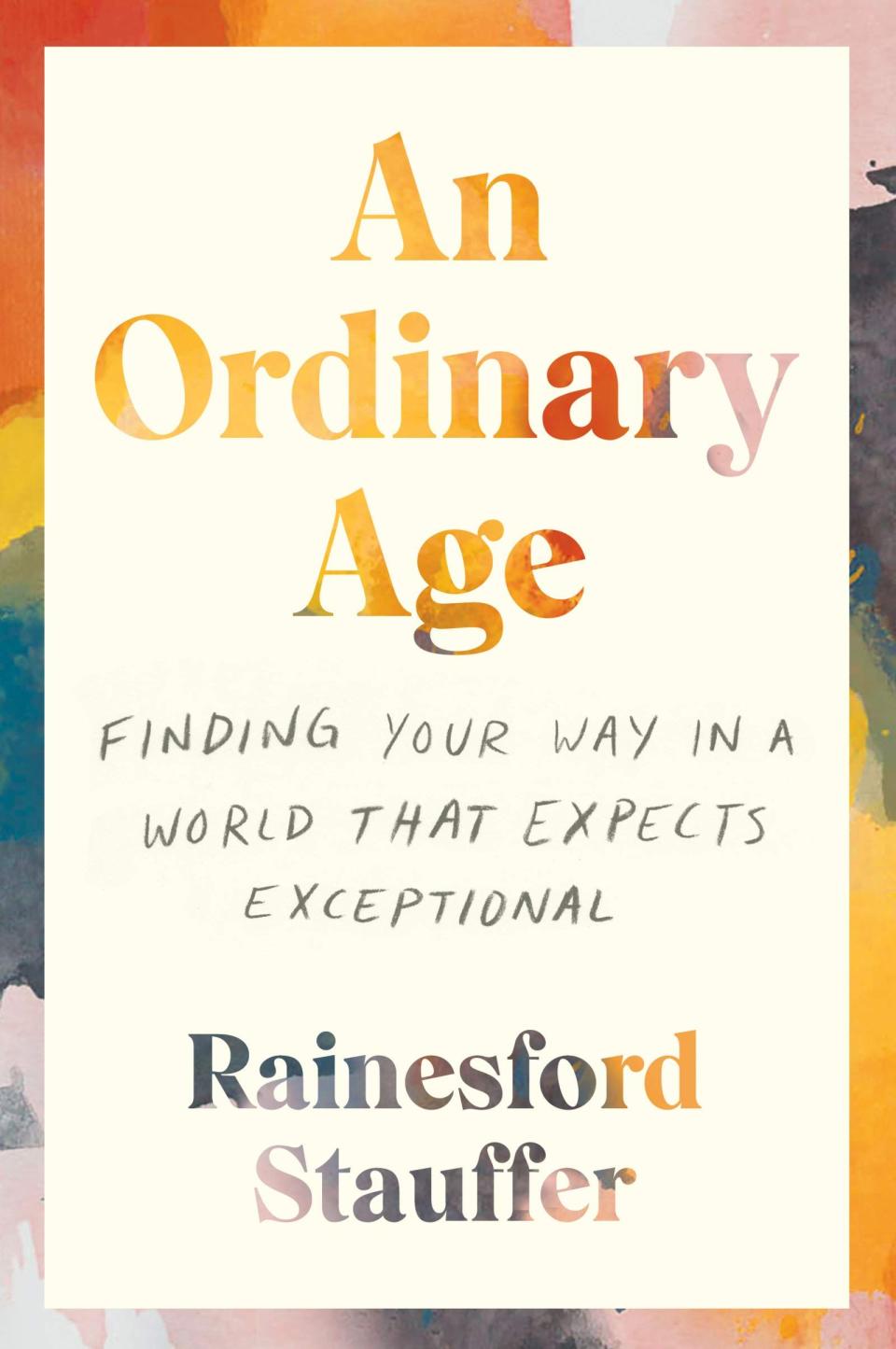Is My Writing a Hobby Or a Career?

"Hearst Magazines and Yahoo may earn commission or revenue on some items through these links."
“So it’s like a hobby?” Someone recently asked about my writing. No, I wanted to say. But yes, kind of. I’ve stumbled my way through this conversation many times before. Yes, I have a full-time job that isn’t related to my writing; yes, I still think of myself as a writer. Is it a hobby, a side hustle, a passion project? It’s all of those things and somehow none of them.
Yet when someone refers to writing as my hobby, I flinch, despite knowing the value of hobbies, or perhaps because it feels so unlike my actual hobbies, like baking. I know how often creative work or work by disabled people, people who are parenting or caregiving, or people with other responsibilities gets relegated to this “hobby” categorization, regardless of how people classify it themselves. Maybe it is a hobby. Or maybe it’s work someone cares about that doesn’t fit a forty-hours-a-week model.
When reporting for my second book, about ambition, I spoke to a researcher who detailed links between ambition, extremism, and passion. Obsessive passion can occur when our passions and identities are the same—the passion is all that we are. “When ambitious people passionately pursue their goals while also attending to their other needs, they are less likely to engage in extremism,” the research states. I heard about the extremism of pursuing one’s passion while reporting: in careers sucking up every hour and every thought, yes, but also in hobbies-turned-passions, like the person who talked about thriving in the competitiveness of extreme, triathlon-style races outside of his grueling medical career, and how all-consuming that was. I wondered how often I dipped into the extremism side—how often I pursued work I cared about at my own expense.

$28.00
amazon.com
My mind flitted to all the times I’d heard about “following a passion,” frustrated by the unsustainability of that advice. “But it’s your passion” and “love of the work” often get used as excuses for exploitation or underpayment in all different kinds of fields, from writing to teaching to nursing and more—an endless list, despite the fact that rent can’t be paid with passion alone. Who can follow their dreams as work—and how and whether those dreams are compensated—is a question that gets lost amid a million backward suggestions that if you really loved the work, it wouldn’t feel like work at all. I’d smashed up against the limits of my own passion before, like when my hard-fought dream of being a dancer ended when my body screamed that it had limits, even if my passion did not, or how, when I was just starting to try to write, I wrote cringe-worthy pieces for free, as if that experience would “pay off” someday. At the same time, I now know that my passion propels me to take on work I care about, even if it means I’m overworked—dreaming of a balance I only sometimes maintain.
Once, someone asked whether I’d ever considered “really writing,” the suggestion being that pieces I reported and books I’ve written were somehow less real because they were not my primary source of income, of health insurance, of work. Nearly right after, someone else asked why I wouldn’t just quit writing if I felt I was working too much. I had no good answers.
Since I was old enough to work, I’d never only had one job, and since I’ve been writing, I’ve never only been a writer. But I’ve always wondered how that would feel. I was used to writing on the side of whatever combination of jobs I had, whether it was working for a nonprofit or working in events for a ballet company that involved a surprising amount of manual labor and, unsurprisingly, no health insurance. I’ve taught toddlers and cleaned bathrooms at a dance studio, and done admin work and random copywriting. I even make a joke about it in the book, paraphrasing When Harry Met Sally: on the side is a big thing for me. I wrote the book on the side. But it felt like the center.
If writing was happening in what some might call margins of my life, did that inherently make it a hobby—or was it actually what knit my life together?
By this point, I know many writers who juggle writing alongside other jobs, other responsibilities—other dreams, even, which is perhaps why the “hobby versus job” binary felt stiff to me. Writing shouldn’t be so unstable that one needs another job to support it. But having another job doesn’t diminish the work of writing, either.
When Neema Avashia, an educator and author of Another Appalachia, began drafting her book, she was teaching full-time and organizing to fight back against school closures. At the same time, she was going to a writing class at GrubStreet once a week and waking up early on Saturdays to write. “Sometimes I look back and I don't really understand how it all happened at the same time,” Avashia told me. “What I realized was the writing was the outlet for it all.”
From the time she was a teenager, Avashia wanted to do writing as full-time work, but she told me that it was hard for her parents, who immigrated to the United States, to see writing as a stable career, telling her that writing could be her avocation, not her vocation. “There are lots of really big questions to ask about the financial sustainability of writing, and who can take those risks,” Avashia said. Plus, as she pointed out, the publishing industry doesn’t necessarily reward those who do make it their full-time job. Even in public education, she said, “I get paid in a much more reasonable way than folks working at HarperCollins do.” (In 2022, the HarperCollins union went on strike, ultimately securing a contract that included a new wage structure and annual increases to minimum salaries at each level, among other highlights.)
The inequities in writing are vast and systemic. The publishing industry remains disproportionately white, with a report by PEN America detailing how biases impact not only who gets published, but how writers are treated and compensated throughout the publication process. Even beyond publishing, underpayment and understaffing often impact who can write, and where. Privilege and bias shape careers from the very start, with who can afford to work for free often underpinning writing-related internships. Then, there’s the layoffs and closures: “It goes down to the bedrock of journalism as a career—even as an idea or desire,” Tajja Isen, author of Some of My Best Friends: Essays on Lip Service, wrote recently for The Walrus. “What are journalists, both would-be and employed, supposed to aspire to now?”
Now, Avashia thinks there are points where writing might demand more of one’s time—for example, when her book came out, she shifted to a part-time schedule at work. But in some cases, her job is where she builds relationships and thinks through questions that inform her writing. “The books that moved me the most are the books where I feel like the writer is most proximate to the things that they're talking about—that they are living those questions themselves,” she explained. For example, she cites Michelle Zauner’s Crying in H Mart and Joan Didion’s The Year of Magical Thinking as books that are about grief—but ones in which writers are living their questions from the inside, and using writing as a means of making meaning of those questions.

$13.38
amazon.com
For her, writing is not a hobby, not work, but what she calls a “third space.” She added, “Writing has always been the way I make meaning of the questions.”
Hannah Matthews, author of You or Someone You Love, told me that she writes for the same reason she does other work: “To communicate and be in community. To connect.” She added, “I think my writing would be so hollow without all of my other work happening around it.” When Matthews began writing her book, her baby was eight months old, and she was working four days a week at a reproductive health clinic, as well as doing doula work beyond those hours. Writing happened, she said, in eight-minute spurts during the day or after bedtime, when she was exhausted.
Sometimes, she feels envious of those who have the resources to write for a living with no other jobs. Then she envisions the alternate reality in which her family could afford that, and comes back to the knowledge that only writing actually wouldn’t be healthiest for her. “I hate that money has to figure into my decisions about where and when and what to write, and I try to just write for pleasure when I can—to remind myself that it's a love and a friend, and not just another job or another obligation,” she said.
It’s crucial that there are more accessible opportunities for people to enter—and remain in—the writing field in all its forms. Whether something produces profit should not be the determinant of the meaning it holds. Writing is work, and like all labor, it deserves sustainable, equitable compensation. There are stories that go untold because someone can’t afford to write them. Talking points on “doing it for the love of the work” feel shallow when passion can’t pay bills, and even more so when millionaires and CEOs tinker with people’s livelihoods as if it’s all a game.
I think, sometimes, of that comment on “really writing,” and I wonder what it means. That if I’d really been ambitious, I would’ve “made it” by now? But then I look at all it has made. Writing has given me plenty of pleasure; it has made a community I couldn’t have imagined when I sent out my first shaky pitches. Through writing, I have found colleagues whose writing have shaped my life and my thinking; I have made friends in countless different zip codes, circumstances, and ages, who cheer for each other, share advice on writing cover letters and negotiating fees, and who have been there when I’ve needed help beyond my career, too. In the work itself, I practice skills—how I interview, how I write, how I read—that I’ll be learning and relearning anew for the rest of my life.
It’s also made me think of so many writers whose work I admire, and how they’ve written in the midst of parenting, caregiving, and other work. They’ve written in their cars on lunch breaks, in the midst of grief, while navigating a dozen other parts of life and pieces of themselves. I think of all that work has given someone, and what it has made.
I crave more: more time to write, more space, more chances to branch out. But having another job doesn’t lessen the writing. And writing as a hobby isn’t a commentary on how and whether you were ambitious enough to turn it into something else. As long as “making it” is about full-time jobs and hours logged, rather than creating meaningful, sustainable opportunities for as many people as possible to do their version of the work, we’re hitting the limits of passion—because whatever form it comes in, it’s work.
You Might Also Like

